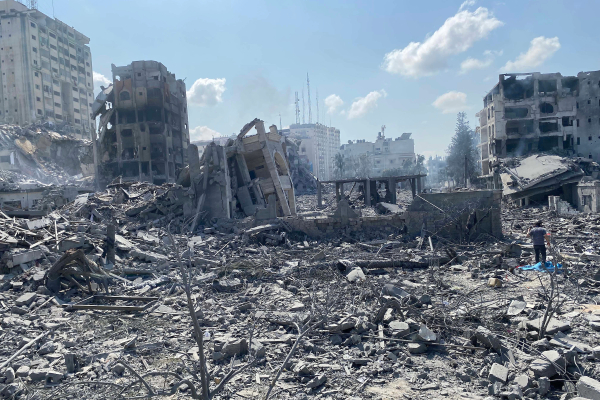Israel’s war cabinet member Benny Gantz has warned that if the hostages in Gaza are not released within the next few weeks, Israel will push into the city of Rafah, the Times of Israel reported.
“The world must know, and Hamas leaders must know — if by Ramzan our hostages are not home, the fighting will continue everywhere, to include the Rafah area,” Gantz said.
The holy month of Ramzan starts on March 10.
“We will do so in a coordinated manner, facilitating the evacuation of civilians in dialogue with our American and Egyptian partners to minimize civilian casualties,” the former Israel Defence Forces chief of staff said.
“To those saying the price [of an offensive] is too high, I say this very clearly: Hamas has a choice — they can surrender, release the hostages, and the citizens of Gaza will be able to celebrate the holy holiday of Ramadan,” he said.
Rafah is currently the last refuge of most of the Palestinian refugees with over a million displaced in the ongoing fight.
The international community including US President Joe Biden has told Netanyahu that a military incursion “should not proceed without a credible and executable plan for ensuring the safety of and support” of the city’s civilian population.
This has not led to Israel PM Benjamin Netanyahu backing down. Yesterday, he said that “those who want to prevent us from operating in Rafah are essentially telling us: ‘Lose the war.’”
Gantz said that in days to come Israel will drive Hezbollah away from towns on the Lebanese border, which has seen intense rocket attacks from the terror group.
According to media reports, the US and several Arab partners are preparing a detailed plan for a comprehensive peace deal between Israel and the Palestinians. Since the war began, over 29,000 people have been killed in the Israeli response to the attack by Hamas
In a career spanning three decades and counting, Ramananda (Ram to his friends) has been the foreign editor of The Telegraph, Outlook Magazine and the New Indian Express. He helped set up rediff.com’s editorial operations in San Jose and New York, helmed sify.com, and was the founder editor of India.com.
His work has featured in national and international publications like the Al Jazeera Centre for Studies, Global Times and Ashahi Shimbun. But his one constant over all these years, he says, has been the attempt to understand rising India’s place in the world.
He can rustle up a mean salad, his oil-less pepper chicken is to die for, and all it takes is some beer and rhythm and blues to rock his soul.
Talk to him about foreign and strategic affairs, media, South Asia, China, and of course India.





